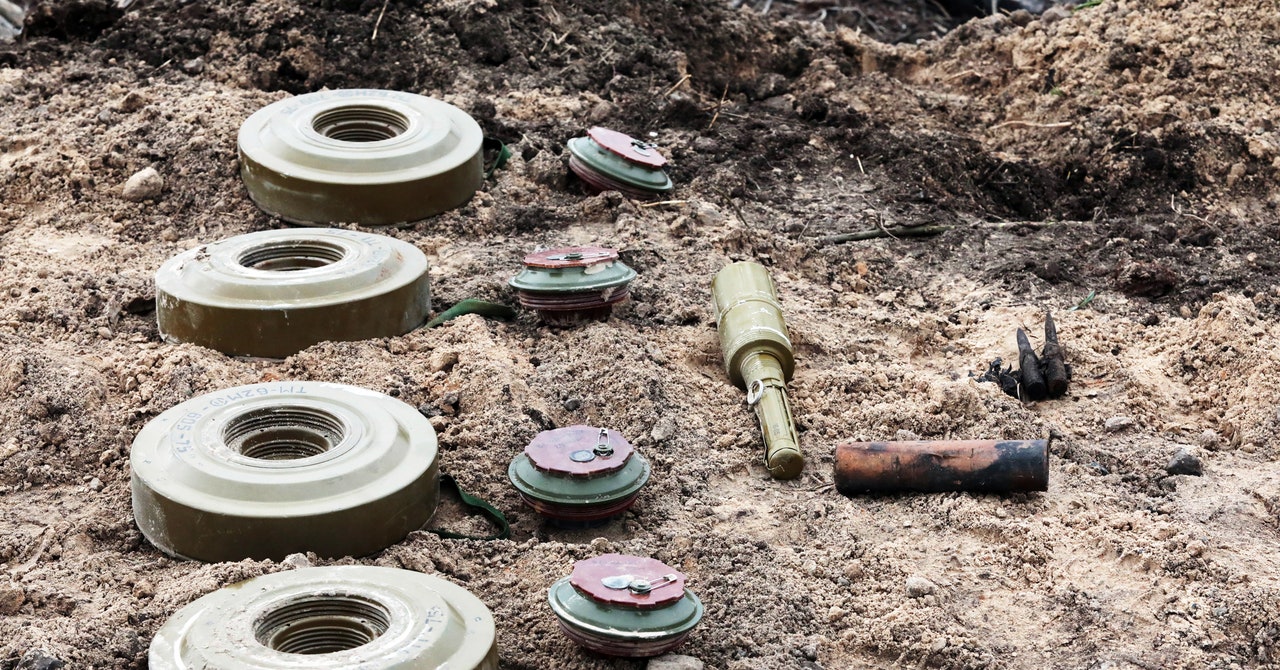
Living among mines then has a well-documented deleterious effect on a country’s psychological health. Research shows that just the knowledge that you are in an area contaminated with explosives can lead to psychological scarring—and in some cases to post-traumatic stress disorder—even if you are never wounded by a mine or trap or witness one being triggered. This sometimes presents in surprising and heartbreaking ways. One study, among other findings, found that the test scores of school children in mine-contaminated areas appeared to go up once those areas had been demined. The fear, the uncertainty, the lack of control—it seeps into everything.
Survivors of landmine explosions also often go on to develop severe depression, anxiety, and PTSD, while also facing discrimination when trying to find work. A landmine injury can destroy a family, leaving a parent unable to work or a spouse in need of care. Physiological and psychological rehab can help with recovery, but Ukraine currently is unlikely to have the capacity to provide what’s needed—it had set goals for providing such support following the invasion of Crimea in 2014, which also involved landmines being deployed, but was failing to meet these targets prior to this year’s invasion.
How long the direct threat of mines will last isn’t yet clear—until Russia leaves Ukraine, there will be no way of determining how many devices and traps there might be. Clearing them will then be a long road: across Africa, the Middle East, and Southeast Asia, antipersonnel mines are still killing people long after conflicts have nominally been resolved. And as long as mines are still in the ground in Ukraine, a psychological weight will hang over the civilian population. Even after they’ve been cleared, the scarring effects of conditions such as PTSD may never be resolved.
But while the war is not yet over, a small but growing number of Ukrainians are beginning to start clearing land. The HALO Trust, a global charity, is working to train people in Ukraine to safely find landmines, with this information then passed on to the Ukrainian military so that the devices can be removed. Trained civilians also educate others about the dangers that now hide in and around their communities.
“We have teachers, lawyers, hairdressers, barmaids—different people from all different backgrounds come, and we train them here,” says Olesia Fesenko, communications officer for the HALO Trust in Ukraine. “The only real requirements we have are motivation and good physical health, because we’re working outdoors, in harsh environments, with people working on their knees lots of the time.”
There are good days, explains Fesenko—like when new recruits discover their first mine and see it taken away for destruction. “Yes, they are very nervous,” she says. “But it then kind of motivates you, because you see: ‘This is the result of my work, and now it will be destroyed and not hurt anyone anymore.’” But then there are the bad. It was the HALO Trust that first reported Luba’s story, and Fesenko’s face darkens immediately as she recalls it.
Teams from organizations like the HALO Trust will play an enormous part in repairing the damage that Russia leaves in its wake—a task that will prove a defining undertaking in modern European history. Simply repairing the structural damage that has been done to Ukrainian homes, to its infrastructure, and to its economy will be every bit as integral to how history remembers this war as the cataclysmic defeat toward which Russia appears to be lurching.
But even with the necessary money, time, and commitment, the psychological torture deliberately and callously inflicted on so many Ukrainian people—be they victims like Luba, or those lucky enough to avoid direct contact with Russia’s vengeful legacy of landmines—will stretch on for decades. “That’s the psychology you’re looking at: to continue the punishment,” says Hiznay. “It’s saying: ‘You’re going to remember us.’”


